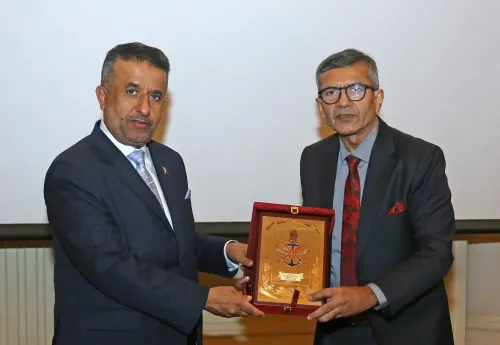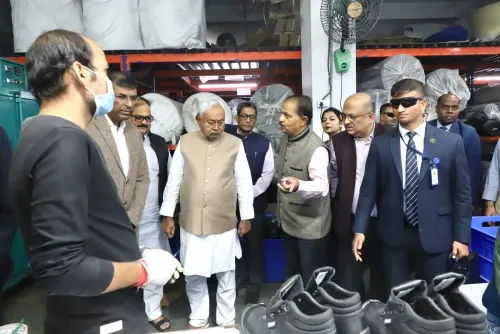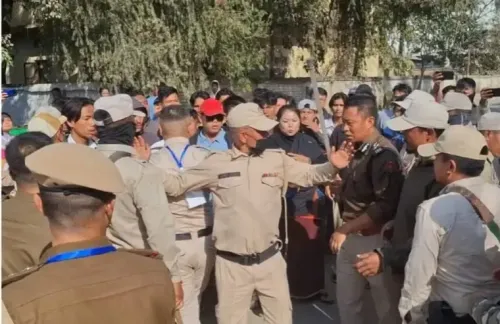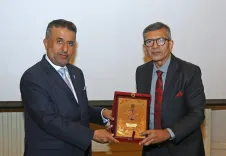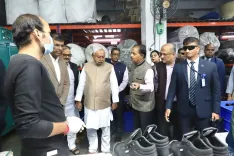How Can Scientists Address Farmers' Challenges?
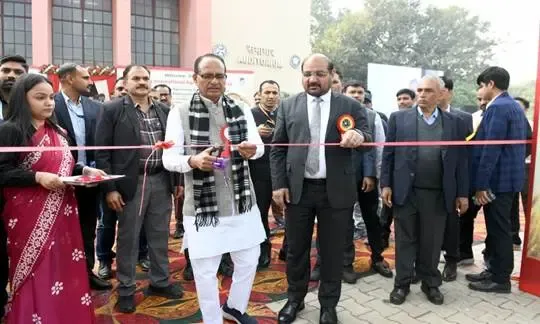
Synopsis
Key Takeaways
- Focus on soil health for sustainable farming.
- Enhance water-use efficiency in agriculture.
- Promote biodiversity and eco-nutrition.
- Integrate AI-driven solutions in farming practices.
- Support youth and women farmers through targeted innovation.
New Delhi, Nov 24 (NationPress) The Agriculture Minister Shivraj Singh Chouhan has called upon scientists to prioritize their research efforts towards tackling the primary issues that farmers are currently facing.
While inaugurating the three-day 6th International Agronomy Congress (IAC–2025) in New Delhi, the minister stated, “Agronomy acts as a vital link between scientific inquiry and practical farming, emphasizing the need for agriculture to aim for increased yield using fewer resources while ensuring sustainability for future generations.”
The Congress sees participation from over 1,000 scientists, policymakers, students, development partners, and industry experts from both India and abroad. Notable international organizations such as the Food and Agriculture Organization (FAO), International Maize and Wheat Improvement Center, and International Rice Research Institute (IRRI) are also represented at this event.
The minister highlighted the importance of enhancing soil health, improving water-use efficiency, promoting biodiversity, advancing eco-nutrition, and integrating AI-driven digital agricultural solutions. He announced that the insights gained from the Congress will shape national policies and regional action strategies.
Chouhan unveiled the IAC–2025 declaration, which includes crucial recommendations such as advocating for soil-carbon sequestration, implementing water-efficient farming practices, and expanding AI-driven digital agriculture solutions within the Agri-Stack framework.
The recommendations also encompass the mainstreaming of natural and regenerative agriculture practices, targeted innovation initiatives for youth and women farmers, and the introduction of next-generation agronomy education in schools and universities.
Additionally, the Congress discussed the One-Health approach, LiFE Mission, strategies aligned with Net-Zero 2070, and promoting Indian climate-smart agricultural models globally.
Minister of State for Agriculture Bhagirath Choudhary emphasized that agronomy should provide solutions to the real challenges faced by farmers. He reiterated that the ultimate aim of agronomy is to boost farmer income, ensure environmental security, and improve nutritional quality.
He underscored the necessity for innovations to be accessible to all farmers, whether in Rajasthan's arid regions or Uttarakhand's hilly areas.
Choudhary also highlighted the significance of rainfed agriculture, natural resource management, empowering women, fostering youth-led innovations, and strengthening rural micro-enterprises.
During the Congress, ten thematic symposia will focus on areas such as climate-resilient agriculture, carbon-neutral farming, nature-based solutions, and precision resource management. Topics like harnessing genetic potential, energy-efficient machinery, digital solutions, and post-harvest management will also be explored.
Furthermore, discussions will include nutrition-sensitive agriculture, gender empowerment, agriculture 5.0, and next-gen educational initiatives. A conference dedicated to young scientists and students will also take place.
This significant global event, running from November 24 to 26, 2025, is organized by the Indian Society of Agronomy (ISA) in partnership with the Indian Council of Agricultural Research (ICAR), the Indian Agricultural Research Institute (IARI), the National Academy of Agricultural Sciences, and the Trust for Advancement of Agricultural Sciences.

